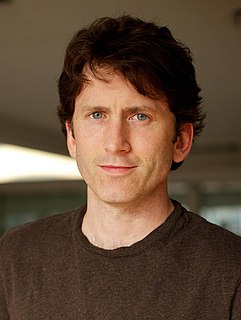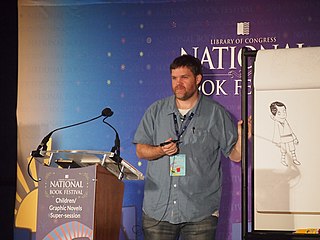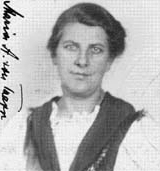A Quote by Todd Howard
Memory is a big one: our ability to use the memory and move things in and out efficiently - that affected what we were able to do more than anything.
Related Quotes
If any one faculty of our nature may be called more wonderful than the rest, I do think it is memory. There seems something more speakingly incomprehensible in the powers, the failures, the inequalities of memory, than in any other of our intelligences. The memory is sometimes so retentive, so serviceable, so obedient; at others, so bewildered and so weak; and at others again, so tyrannic, so beyond control! We are, to be sure, a miracle every way; but our powers of recollecting and of forgetting do seem peculiarly past finding out.
But pain may be a gift to us. Remember, after all, that pain is one of the ways we register in memory the things that vanish, that are taken away. We fix them in our minds forever by yearning, by pain, by crying out. Pain, the pain that seems unbearable at the time, is memory's first imprinting step, the cornerstone of the temple we erect inside us in memory of the dead. Pain is part of memory, and memory is a God-given gift.
Memory is a dead thing. Memory is not truth and cannot ever be, because truth is always alive, truth is life; memory is persistence of that which is no more. It is living in ghost world, but it contains us, it is our prison. In fact it is us. Memory creates the knot, the complex called the I and the ego
Own only what you can always carry with you: know languages, know countries, know people. Let your memory be your travel bag. Use your memory! Use your memory! It is those bitter seeds alone which might sprout and grow someday. Look around you - there are people around you. Maybe you will remember one of them all your life and later eat your heart out because you didn't make use of the opportunity to ask him questions. And the less you talk, the more you'll hear.
Our capacity to move forward as developing beings rests on a healthy relationship with the past. Psychotherapy, that widespread method for promoting mental health, relies heavily on memory and on the ability to retrieve and organize images and events from the personal pastIf we learn not only to tell our stories but to listen to what our stories tell us—to write the first draft and then return for the second draft—we are doing the work of memory.
Our age has become so mechanical that this has also affected our recreation. People have gotten used to sitting down and watching a movie, a ball game, a television set. It may be good once in a while, but it certainly is not good all the time. Our own faculties, our imagination, our memory, the ability to do things with our mind and our hands-they need to be exercised. If we become too passive, we get dissatisfied.
Memory is strange. Scientifically, it is not a mechanical means of repeating something. I can think a thousand times about when I broke my leg at the age of ten, but it is never the same thing which comes to mind when I think about it. My memory of this event has never been, in reality, anything except the memory of my last memory of that event. This is why I use the image of a palimpsest - something written over something partially erased - that is what memory is for me. It's not a film you play back in exactly the same way. It's like theater, with characters who appear from time to time.
Like our physical bodies, our memory becomes out of shape. As children, we are constantly learning new experiences, but by the time we reach our 20s, we start to lead a more sedentary life both mentally and physically. Our lives become routine, and we stop challenging our brains, and our memory starts to suffer.
You have to be reminded of a basic fact: intelligence belongs to the watching consciousness; memory belongs to the mind. Memory is one thing - memory is not intelligence. But the whole of humanity has been deceived for centuries and told indirectly that the memory is intelligence. Your schools, your colleges, your universities are not trying to find your intelligence; they are trying to find out who is capable of memorizing more. And now we know perfectly well that memory is a mechanical thing. A computer can have memory, but a computer cannot have intelligence.





































